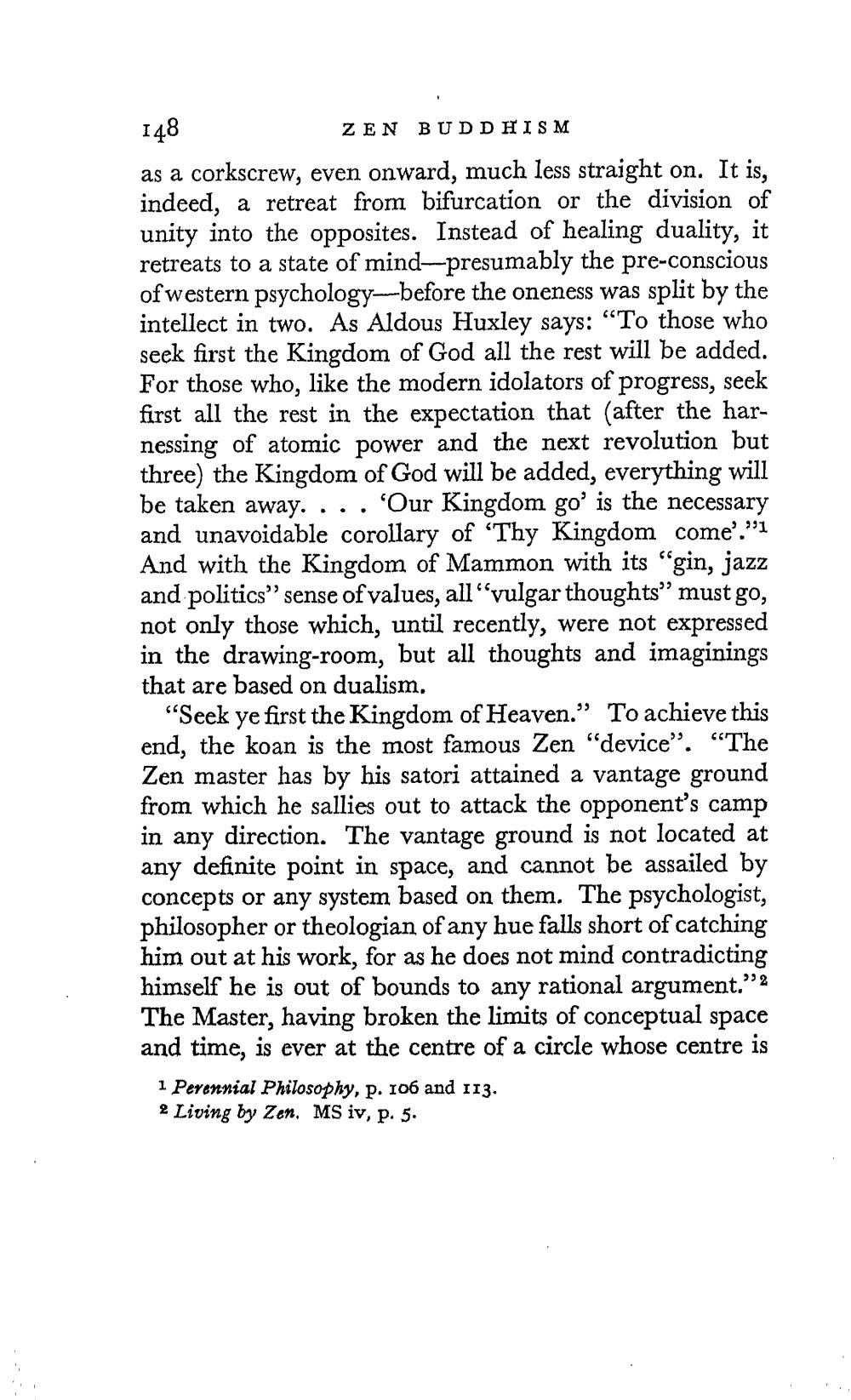________________
148
ZEN BUDDHISM as a corkscrew, even onward, much less straight on. It is, indeed, a retreat from bifurcation or the division of unity into the opposites. Instead of healing duality, it retreats to a state of mind-presumably the pre-conscious of western psychology--before the oneness was split by the intellect in two. As Aldous Huxley says: "To those who seek first the Kingdom of God all the rest will be added. For those who, like the modern idolators of progress, seek first all the rest in the expectation that (after the harnessing of atomic power and the next revolution but three) the Kingdom of God will be added, everything will be taken away. . . . 'Our Kingdom go’ is the necessary and unavoidable corollary of 'Thy Kingdom come'."'1 And with the Kingdom of Mammon with its "gin, jazz and politics" sense of values, all“vulgar thoughts" must go, not only those which, until recently, were not expressed in the drawing-room, but all thoughts and imaginings that are based on dualism.
"Seek ye first the Kingdom of Heaven." To achieve this end, the koan is the most famous Zen "device". “The Zen master has by his satori attained a vantage ground from which he sallies out to attack the opponent's camp in any direction. The vantage ground is not located at any definite point in space, and cannot be assailed by concepts or any system based on them. The psychologist, philosopher or theologian of any hue falls short of catching him out at his work, for as he does not mind contradicting himself he is out of bounds to any rational argument."2 The Master, having broken the limits of conceptual space and time, is ever at the centre of a circle whose centre is
1 Perennial Philosophy, p. 106 and 113. 2 Living by Zen, MS iv, p. 5.




